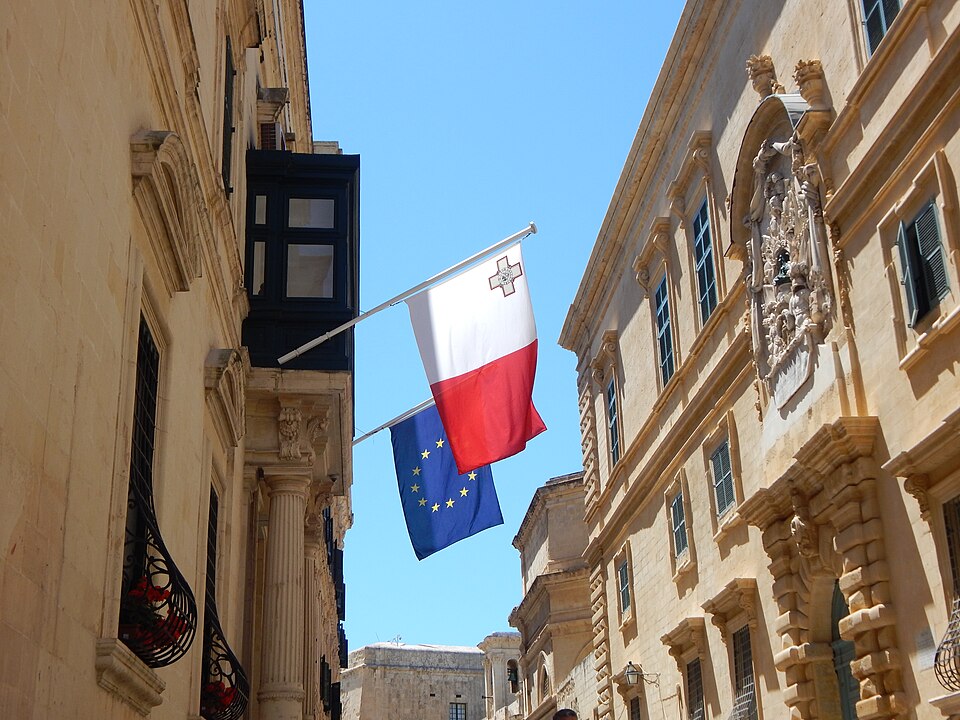Malta’s 20th anniversary as a member of the European Union is a milestone marking “two decades of growth, modernisation, and shared prosperity,” according to the Malta Business Bureau (MBB), which has released a statement commemorating the event.
“Since joining the EU on 1st May 2004, Malta has made significant strides in various economic sectors, and has positioned itself as an attractive location for companies to do business in Europe,” said the association, a joint venture between The Malta Chamber and the Malta Hotels and Restaurants Association relating to EU business advisory.
“This is largely owing to the EU Single Market, the jewel in the crown of the European project, which provides businesses with wider market opportunities and a greater pool of consumers and workers.”
The MBB said that EU membership has also allowed Malta to benefit from a significant mobilisation of funding opportunities to support the improvement of infrastructure, education, technology, and to help Maltese businesses in their development and growth.
While admitting that the EU has weathered significant challenges over the last two decades, including a financial and debt crisis, Brexit, an unexpected pandemic, and growing geo-political wars on its borders and close neighbourhood, the bloc has also renewed its focus on certain key issues as it aims to become a world leader in the green and digital spaces.
Malta’s 20th anniversary coincides with the European Parliament election taking place in June this year, followed by the appointment of a new College of Commissioners shortly after.
The MBB said that “this stands for a delicate time in which the EU is facing growing pressures to strike a better balance between its policy agenda and ensuring the competitiveness of European businesses.”
Ahead of the next EU term (2024-2029), the MBB has published its business priorities which shed light on the most crucial opportunities and challenges effecting Maltese businesses going forward.
Commenting on the Maltese business priorities, MBB President Alison Mizzi said, “The EU is expected to keep its momentum and build upon the legislation adopted over the last five years. Stronger commitments will be reached to reduce emissions further, while technological advancements and their related risks will require new legislation. Our call is for EU policymakers to remain mindful of the heavy implementation costs that businesses are already facing and of Europe’s degrading competitiveness compared to other countries such as the USA and China.”
The publication is structured along three pillars: Competitiveness and Growth, the Green Transition, and the Digital Transition.
Ensuring competitiveness is a priority which features throughout and is expected to gain increasing importance in EU policy circles over the next term. The MBB is calling for efforts to focus on reducing regulatory burdens, prioritising subsidiarity and proportionality, accounting for insularity and regional handicaps, and more.
With regards to the Green Transition, EU policymakers must address persistent financing gaps which limit private investment, reduce complex and overlapping regulation, and ensure the EU’s open strategic autonomy to develop its resilience to outside shocks.
On the Digital Transition, the MBB is urging policymakers to put forward timely and future-proof rules governing high tech and the digital economy, only when genuine market failures are found.
Other issues addressed, among others, include the need to strengthen the Single Market, better regulation, future EU enlargement, consolidating tourism activity, and ensuring sufficient labour supply.
Featured Image:
Government introduces mandatory physical inspection for vintage vehicle classification
From 1st September 2025, vehicles seeking vintage status must undergo a physical inspection by the official classification committee
Local filmmakers paid just €250 to screen at Mediterrane Film
The figure stands in stark contrast to the estimated €5 million total spend
Malta International Airport closes in on one million passengers in June
Meanwhile, aircraft traffic movement rose by 4.5 per cent year on year






